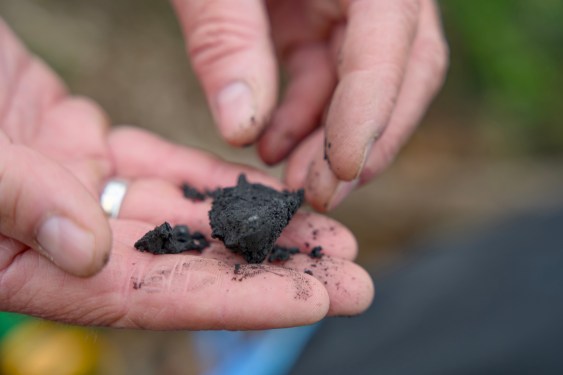McDonald’s has made starting a burger restaurant a straightforward process. Franchisees buy into the system and receive equipment, marketing support, and a detailed operating manual. Terraton aims to apply that same franchising model to biochar, a technology that converts agricultural waste into a fertilizer that sequesters carbon dioxide.
Terraton recently raised an $11.5 million seed round to fund its “business-in-a-box” approach to biochar project development. The funding round was led by Lowercarbon Capital and Gigascale Capital. It included participation from ANA Holdings’ ANA Future Frontier Fund, East Japan Railway Company’s Takanawa Gateway Global Co-Benefits Fund, and several angel investors like Google’s Jeff Dean and OpenAI board member Bret Taylor.
According to Greg D’Alesandre, co-founder of Terraton, most biochar facilities are one-off projects built by people who have never progressed beyond that single build. Terraton is betting that it can help partners construct initial biochar facilities and then use that experience to clone the operations for many other companies wanting to enter the business. The company is also developing a SaaS platform to manage the plants, measure and verify carbon credits, and sell those credits to large corporations.
Co-founders Gibbs and D’Alesandre believe biochar is ripe for the franchise approach. The technology works by burning waste plant material without oxygen. The resulting black matter can be incorporated into soil, where it stores carbon for hundreds of years while simultaneously improving soil health.
Co-founder and CEO Kevin Gibbs stated that the science behind biochar is settled, reliable, and available at a good price. However, the problem is that it is supply constrained. When speaking with large buyers such as Microsoft, Google, and Airbus, he found they want to purchase more but cannot find enough supply.
A significant part of the problem is that biochar facilities must be built near sources of agricultural waste to keep transportation costs low. A single facility can produce enough biochar to capture approximately 10,000 metric tons of carbon dioxide annually. While that is a substantial amount, it is not enough to offset the emissions of a large AI data center.
So far, Terraton has developed two facilities in Africa, one in Ghana and another in Kenya. The facility in Ghana buys waste from a cocoa producer, and the facility in Kenya uses residue from a nut processor. Together, Terraton expects these plants will remove 20,000 metric tons of carbon dioxide each year.
The local biochar facilities are owned by local businesses. Gibbs emphasized the importance of having a person with established relationships with local farmers who has skin in the game and a sense of ownership. Terraton focuses on doing everything it can to ensure these local partners are successful.

